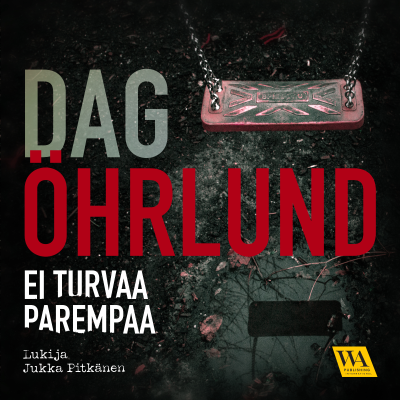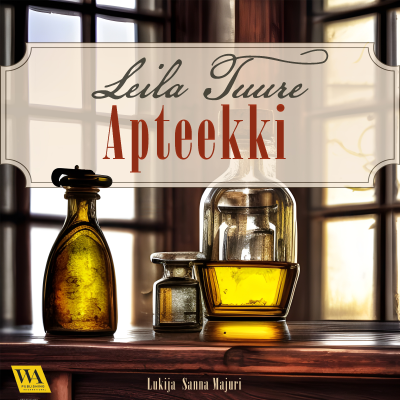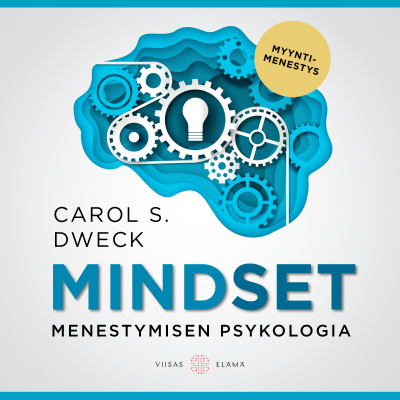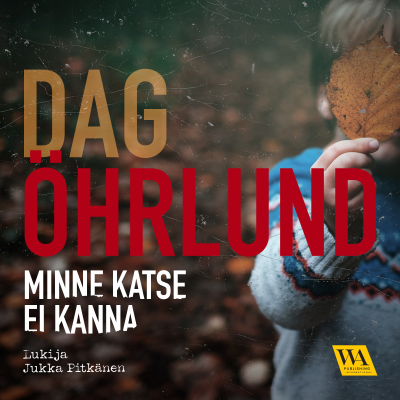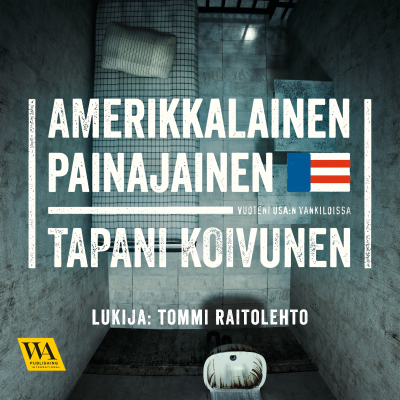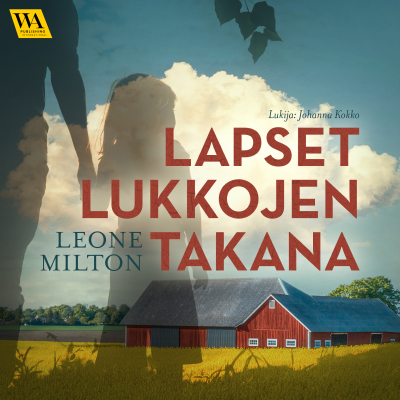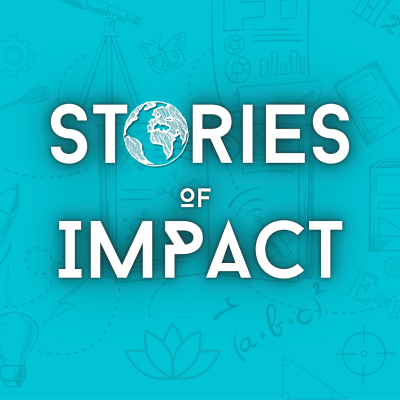
Stories of Impact
englanti
Historia & uskonnot
Rajoitettu tarjous
1 kuukausi hintaan 1 €
Sitten 7,99 € / kuukausiPeru milloin tahansa.
- Podimon podcastit
- Lataa offline-käyttöön
Lisää Stories of Impact
In every episode, we travel the world and dive deep into the intersection of spirituality and science on Stories of Impact, The American Writing Awards Science Podcast of the Year. Every first and third Tuesday of the month, writer, performer, producer Tavia Gilbert and journalist Richard Sergay bring you a new conversation that offers uplifting explorations about the art and science of human flourishing. This project was made possible through the generous support of a grant from Templeton World Charity Foundation.
Kaikki jaksot
121 jaksotDr. Colin Allen, Dr. Erica Cartmill, and Dr. Heidi Lyn: Animal Joy and the Science of Connection
Are animals capable of feeling joy? How do we know? What is joy? Dr. Erica Cartmill wants to find out. She's the Indiana University professor of cognitive science, animal behavior, and anthropology that long-time listeners to Stories of Impact will recognize from conversations we've had in the past about her studies of diverse intelligences and humor in apes. Today, we'll learn about one of her latest collaborative projects — a first of its kind multidisciplinary study: Joyful by Nature, on the evolution and the function of joy in animals. She's joined in conversation by Dr. Colin Allen, Professor of Philosophy at University of California Santa Barbara and Dr. Heidi Lyn, Joan M. Sinnott Professor in Psychology and Marine Sciences at the University of South Alabama. This team of expert researchers shares why it's both timely and important to move the science of animal emotion forward. * Read the transcript of this episode * Subscribe to Stories of Impact wherever you listen to podcasts * Find us on Facebook [https://www.facebook.com/StoriesOfImpact/], Twitter [https://twitter.com/StoriesOfImpac_], Instagram [https://www.instagram.com/storiesofimpactseries/] and YouTube [https://www.youtube.com/playlist?list=PL8p4rpol8q2iCBTQ8qz6YRcheYL9FTBuP] * Share your comments, questions and suggestions at info@storiesofimpact.org [info@storiesofimpact.org] * Supported by Templeton World Charity Foundation [https://www.templetonworldcharity.org]
Remembering Dr. Jane Goodall: The Wild Fight for Our Planet
In remembrance of Jane Goodall (4/3/34 - 10/1/25), we're bringing back our conversation featuring her life and legacy. Luminary Dr. Jane Goodall for decades made significant contributions to not only the scientific world, but arguably, to the entire planet. When 26-year-old British-born Jane Goodall began field studies of primates in Tanzania in July 1960, she was the first researcher to observe chimpanzees in the wild, and she remains the world's foremost expert on chimpanzees. Her rigorous and creative approach quickly gained the attention of the National Geographic Society, which awarded her first grant, and has passionately championed her work in the decades since. Despite never getting a college degree, Dr. Goodall was accepted at Cambridge University, earned her PhD in ethology in 1966, and spent decades in the Gombe Stream National Park studying chimpanzee communities, eventually becoming the only human to ever be accepted into a chimpanzee society. In her 90 years, Dr. Goodall was a legendary conservationist, galvanizing educator, UN Messenger of Peace, and an inspiring writer and public speaker. Her curiosity, empathy, wisdom, protective heart, and unshakeable hope reflect the best of humanity, and even though her conversation was short, you'll hear all of those exemplary characteristics embodied in her voice and story. * Read the transcript [https://drive.google.com/file/d/1vi2rJMfL4DrgdpL6LVPuSmgq5ksz77Q_/view?usp=drive_link] of this episode * Subscribe to Stories of Impact wherever you listen to podcasts * Find us on Facebook [https://www.facebook.com/StoriesOfImpact/], Twitter [https://twitter.com/StoriesOfImpac_], Instagram [https://www.instagram.com/storiesofimpactseries/] and YouTube [https://www.youtube.com/playlist?list=PL8p4rpol8q2iCBTQ8qz6YRcheYL9FTBuP] * Share your comments, questions and suggestions at info@storiesofimpact.org [info@storiesofimpact.org] * Supported by Templeton World Charity Foundation [https://www.templetonworldcharity.org]
Dr. Alison Gopnik: Why Care Is the Heart of Human Flourishing
"If you ask most people what's the most morally profound, significant, meaningful thing in your life, they'll say something about the way that they have been taking care of children or parents or friends, or people who are ill, or spouses. There's something very distinctive about it. It's just intrinsic to the human condition is that we're going to be babies, we're going to be ill, we're going to be old. That just comes with the territory of being human, and care seems to be a way of allowing us as a community, as a species to negotiate these kinds of transitions, to make the transitions work." Dr. Alison Gopnik is a professor of philosophy and psychology at the University of California, Berkeley, and a leading researcher on caregiving. Today, we explore her international research project designed to "think about the way that we care for other people." Read the transcript [https://drive.google.com/file/d/1fqWMHpfXmW3Bt0ZFUbkn2dqzw65W2AVr/view?usp=drive_link] of this episode Subscribe to Stories of Impact wherever you listen to podcasts Find us on Facebook [https://www.facebook.com/StoriesOfImpact/], Instagram [https://www.instagram.com/storiesofimpactseries/], Bluesky [https://bsky.app/profile/storiesofimpact.bsky.social], and YouTube [https://www.youtube.com/playlist?list=PL8p4rpol8q2iCBTQ8qz6YRcheYL9FTBuP] Share your comments, questions and suggestions at info@storiesofimpact.org [info@storiesofimpact.org] Supported by Templeton World Charity Foundation [https://www.templetonworldcharity.org/]
Dr. Bahar Köymen on How Children Learn to Think Together
The world today is grappling with enormous challenges: how will we allow artificial intelligence to impact society? How hot will we let the planet get? How do we stop the conflicts making life for so many so painful? We are not powerless. These are decisions that humans are capable of making, though no one person can solve such existential questions on their own. To solve the world's problems, to take care of each other and create a better future, we have to decide to work with each other to do it. Dr. Bahar Köymen, senior lecturer of psychology, communication and human neuroscience at the University of Manchester, studies the emergence and development of human reasoning. As a developmental psychologist, to better understand how humans develop collective reasoning, Dr. Köymen is taking an unusual approach: studying children. Read the transcript [https://drive.google.com/file/d/1-tROL-8Cm847xTIwqBgu8OU0iZr8YLIg/view?usp=sharing] of this episode Subscribe to Stories of Impact wherever you listen to podcasts Find us on Facebook [https://www.facebook.com/StoriesOfImpact/], Instagram [https://www.instagram.com/storiesofimpactseries/], Bluesky [https://bsky.app/profile/storiesofimpact.bsky.social], and YouTube [https://www.youtube.com/playlist?list=PL8p4rpol8q2iCBTQ8qz6YRcheYL9FTBuP] Share your comments, questions and suggestions at info@storiesofimpact.org [info@storiesofimpact.org] Supported by Templeton World Charity Foundation [https://www.templetonworldcharity.org/]
Nicole Bruskewitz and Henry May on Transforming Education Through Character
When Coschool founder and CEO Henry May began his career as a teacher, he learned that his job was not just about enriching the mind, but the soul and spirit of a student as well. He saw that part of excellence in education was helping school communities thrive despite painful circumstances. Nicole Bruskewitz, Coschool's Director of Education, was also a problem solver who'd questioned inequality and education access since childhood. When May and Bruskewitz were introduced to the pioneering work of Dr. Marvin Berkowitz, they thought that his unique educational model could be particularly transformative across their adopted home country of Colombia's entire public educational system. They dreamed of reaching hundreds of schools and entire cities across Colombia — and beyond, educating, promoting character development, and helping heal collective trauma. Hear about the impact of their work in today's episode. Read the transcript [https://drive.google.com/file/d/1sBUFS69dls_hyJCoSH5GbRUoGOIMVhZo/view?usp=drive_link] of this episodeSubscribe to Stories of Impact wherever you listen to podcastsFind us on Facebook [https://www.facebook.com/StoriesOfImpact/], Instagram [https://www.instagram.com/storiesofimpactseries/], Bluesky [https://bsky.app/profile/storiesofimpact.bsky.social], and YouTube [https://www.youtube.com/playlist?list=PL8p4rpol8q2iCBTQ8qz6YRcheYL9FTBuP] Share your comments, questions and suggestions at info@storiesofimpact.org [info@storiesofimpact.org] Supported by Templeton World Charity Foundation [https://www.templetonworldcharity.org/]
Valitse tilauksesi
Rajoitettu tarjous
Premium
Podimon podcastit
Lataa offline-käyttöön
Peru milloin tahansa
1 kuukausi hintaan 1 €
Sitten 7,99 € / kuukausi
Premium
20 tuntia äänikirjoja
Podimon podcastit
Lataa offline-käyttöön
Peru milloin tahansa
30 vrk ilmainen kokeilu
Sitten 9,99 € / month
Premium
100 tuntia äänikirjoja
Podimon podcastit
Lataa offline-käyttöön
Peru milloin tahansa
30 vrk ilmainen kokeilu
Sitten 19,99 € / month
1 kuukausi hintaan 1 €. Sitten 7,99 € / kuukausi. Peru milloin tahansa.













